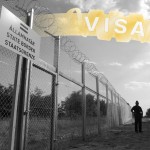It’s not a slam-dunk, of course; you need to prove that you render “exceptional services in the special interest of the Republic.” While the law does not spell out what those might be or set a minimum amount, companies that help aspiring immigrants apply say the price tag can be as high as €10 million.
When it comes to business people, these “exceptional services” can include investments. In that sense, the Austrian system can be compared to other countries’ so-called Golden Visa schemes — programs in which foreigners can obtain legal residence or even citizenship in new countries in exchange for substantial amounts of money.
Originating more than 30 years ago in the Caribbean, such schemes have spiked in popularity in the past decade and are now offered in over 20 countries. They have been criticized for allowing wealthy people, including politicians or political insiders from corrupt regimes, to gain access to Western countries.
In the Austrian case, however, even high-wattage recommendations or massive investments are sometimes not quite enough to get you through the door.
Take the previously unreported case of Rami Makhlouf, who launched an attempt to gain Austrian citizenship in 2009. Makhlouf, the much-sanctioned cousin of Syrian President Bashar al-Assad, had the support of a former Austrian minister.
Reporters for Addendum, an Austrian investigative platform which joined the Organized Crime and Corruption Reporting Project (OCCRP) in the Golden Visas project, traced Makhlouf’s ultimately unsuccessful effort to gain citizenship. His 2009 application process included three separate filings.
These filings, which were examined by reporters, went into detail about his business empire, his plans to invest in Austria, and his love of hunting. Yet he failed to mention that he was Assad’s cousin or that he was subject to US sanctions.
Other wealthy foreigners whose cases were somewhat less political — and who enjoyed the support of the country’s business community — had better luck.
The Social Democratic Connection
The Austrian fast-track citizenship system sets out only very vague criteria. According to the law, the federal government merely has to confirm “the granting of citizenship because of the extraordinary achievements already made by the foreigner and to be expected of him is in the special interest of the republic.”
In practice, applicants usually submit their requests to one of the country’s provincial government offices. Officials then gather a number of statements — for example, from relevant ministries — as to whether the person has actually provided extraordinary services for the republic and whether more can be expected.
Letters of recommendation play an important role. Makhlouf presented one signed by Karl Blecha, the former interior minister for the Social Democratic Party (SPÖ), and Kurt Heindl, the former SPÖ financial spokesman in the National Council.
In 2009, Blecha and Heindl were respectively president and executive president of the Society for Austro-Arab Relations. In these functions, they supported Makhlouf with the following letter to his lawyer:
“We have known Mr. Makhlouf on various occasions and have come to know and appreciate him as a trustworthy and correct partner. In our view, the award of the Austrian citizenship to Mr. Makhlouf would very well be in the economic and, ultimately, political interest of Austria.”
Although the letter is dated August 6, 2009, it does not mention that Makhlouf had been sanctioned by the US government more than a year earlier, in February 2008. All of his assets in the US had been frozen and US citizens were prohibited from entering into business relationships with him.
A spokesperson for the Society told Addendum on Friday that the US sanctions were imposed for “political reasons” which at that time were “completely irrelevant” for Europe.
Makhlouf had applied for citizenship at the Office of the Vienna Regional Government, and that office asked the Ministry of Labor, Social Affairs and Consumer Protection for an opinion on his application.
According to ministry files studied by reporters, officials discussed the matter internally, noting that while Makhlouf might well have a positive impact on the labor market, “reference should be made to the following with regard to Mr. Rami Makhlouf”:
“According to press releases (see attachments), Rami Makhlouf is a cousin of the Syrian President Bashar al-Assad. Due to his close relationship with the Syrian president, he had become one of the richest businessmen in Syria.”
Attached was an article from Welt Online called "The Oligarch from the Orient," which the ministry summarized and added further comments: “US companies are not allowed to do business with [Makhlouf’s] companies due to US Treasury Department’s sanctions and his bank deposits are frozen. According to the report, the director of the US Treasury Department said Rami Makhlouf had used his contacts with the government to ‘enrich himself at the expense of the Syrian people’.”
Despite the internal red-flagging by officials, when the labor ministry sent its opinion on to the Office of the Vienna Regional Government in October 2009, it mentioned neither the US sanctions nor Makhlouf’s connection with Assad, addressing only labor market policy.
Makhlouf had submitted a draft business plan for the Vienna-based Medox GmbH, a subsidiary of Medox Ltd., a Dubai company he claimed to control at that time. The Vienna company operated two apartment hotels and an upscale restaurant. (There seems to have been a change in ownership since then. A Medox lawyer said last week that Makhlouf is not connected with the Medox Group.)
The ministry’s assessment was cautiously positive:
“With regard to the investment already made in the amount of €20,000,000, and the intended investment in the amount of another €10,000,000 in the catering and accommodation sector, as well as the expected creation of more than 100 jobs, it can be assumed that this would be a contribution to the employment situation in Austria and it would make sense in terms of labor market policy,” the assessment states.
However, it continued, the ministry “can examine the information in the documents only with regard to their plausibility, but not to their actual veracity. Should the [Office of the Vienna Regional Government] come to the conclusion that the planned investment can actually be implemented, Mr. Makhlouf Rami's application for the award of Austrian citizenship will be supported from the labor market point of view.”
According to an internal note labor ministry note, an official on the Vienna City Council had wanted to involve the Foreign Ministry, then known as the Ministry for European and International Affairs, in the process as well — but this was opposed by Makhlouf’s lawyer. It is unclear whether any agencies other than the Vienna city government and the labor ministry ever got involved.
In May 2012, the magazine Profil reported that Makhlouf had unsuccessfully applied for Austrian citizenship in the previous year. He may have started a second attempt in 2011 or continued the earlier application process. But by 2011, Makhlouf was already on the EU’s sanctions list, which ultimately should have made his Austrian attempt hopeless.
It is not known whether his application was ever formally rejected, or if he and his lawyer simply decided to stop making the attempt.
Makhlouf had better luck, at least initially, in Cyprus, which granted him citizenship in 2010, according to The Guardian. That citizenship “was revoked after the outbreak of the Syrian civil war,” the newspaper reported.
Yeltsin’s Daughter and Deripaska's Father-in-Law
In less politically sensitive cases, and with the support of the business community, other foreigners have been able to successfully navigate Austria’s fast-track immigration system.
Tatyana Yumasheva, the daughter of former Russian president Boris Yeltsin, did succeed in obtaining Austrian citizenship in November 2009 together with her husband, Valentin Yumashev, and their daughter. Their support came not from the political side, but from the business community.
As the magazine News reported in 2013, the global automotive supplier Magna supported Mr. Yumashev’s request for fast-track citizenship for himself and his wife. But not only theirs.
Addendum reporters discovered that a second applicant was naturalized along with the Yumashevs in a parallel proceeding: Gulzhan Moldazhanova, the powerful CEO of Basic Element, the business group owned by wealthy Russian businessman Oleg Deripaska.
The Austrian daily newspaper Salzburger Nachrichten had reported in 2010 that a “Gulzan M.” had received an Austrian passport. Addendum confirmed that this was Moldazhanova, and that she had also been helped by Magna.
Tracy Fuerst, global director of corporate communications for Magna International, told Addendum in an email, “The allegations relate to events that are unsubstantiated and, according to [you], occurred nine years ago. As a global company, Magna takes pride in being a responsible corporate citizen.”
Asked to clarify what, exactly, was unsubstantiated, Fuerst did not respond.
Deripaska — who was banned from visiting the United States due to alleged ties to organized crime — had at that time already gained a foothold in Austria, which may have been helpful to his in-laws. Valentin Yumashev is not only Yeltsin’s son-in-law, but also the father of Deripaska’s wife, Polina.
Franz Schnabl, who today is the head of the Social Democratic Party in Lower Austria, was at that time one of the directors of Magna and the main contact person with the government of the region of Burgenland for Moldazhanova’s and Yumashev’s citizenship requests. Magna even paid various fees connected with the naturalizations.
The address reported by the Yumashevs is that of an expensive house in central Vienna that is owned, through two companies, by former Magna boss Siegfried Wolf, who began working for Deripaska) several years ago.
A German version of this story from Addendum is available here.
This story is part of the Global Anti-Corruption Consortium, a partnership between OCCRP and Transparency International.







